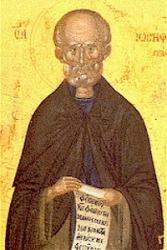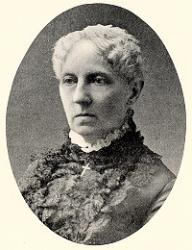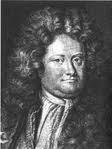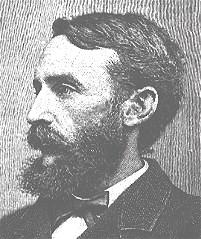Planning worship?
Check out our sister site, ZeteoSearch.org,
for 20+ additional resources related to your search.
- |
User Links
Person Results
‹ Return to hymnal





Export as CSV
Lucia T. Auryansen
Hymnal Number: d131 Author of "Here, where the sun shines lovingly" in The Student Hymnary
Lucia T. Auryansen
St. Joseph the Hymnographer

810 - 886 Person Name: Joseph the Hymnographer Hymnal Number: d186 Author of "Let us choral anthems raise" in The Student Hymnary Joseph, St., the Hymnographer. A native of Sicily, and of the Sicilian school of poets is called by Dr. Neale (in his Hymns of the Eastern Church), Joseph of the Studium, in error. He left Sicily in 830 for a monastic life at Thessalonica. Thence he went to Constantinople; but left it, during the Iconoclastic persecution, for Rome. He was for many years a slave in Crete, having been captured by pirates. After regaining his liberty, he returned to Constantinople. He established there a monastery, in connection with the Church of St. John Chrysostom, which was filled with inmates by his eloquence. He was banished to the Chersonese for defence of the Icons, but was recalled by the empress Theodora, and made Sceuophylax (keeper of the sacred vessels) in the Great Church of Constantinople, through the favour of the patriarch Ignatius. He stood high also in the favour of Photius, the rival and successor of Ignatius, and accompanied him into banishment. He died at an advanced age in 883. He is commemorated in the Calendars of the Greek Church on April 3rd. He is the most voluminous of the Greek hymnwriters. There are more than two hundred Canons under the acrostic of his name, in the Menaea. Cardinal Pitra says he is reported to have composed a thousand. There is some difficulty in distinguishing his works from those of the brother of Theodore of the Studium, Joseph of Thessalonica. This latter poet, and not the more celebrated Joseph the Hymnographer, was named Joseph of the Studium. [Rev. H. Leigh Bennett, M.A.]
-- John Julian, Dictionary of Hymnology (1907)
See also in:
Wikipedia
St. Joseph the Hymnographer
Caroline A. Mason

1823 - 1890 Hymnal Number: d230 Author of "O God, I thank thee for each sight" in The Student Hymnary Mason, Caroline Atherton, née Briggs, daughter of Dr. Calvin Briggs, of Marblehead, b. there July 27, 1823, married Charles Mason, a lawyer at Fitchburg, in 1853, and d. there June 13, 1890. She published a volume of poems as Utterance: or Private Voices to the Public Heart, 1852. Her Lost Ring and other Poems was issued in 1891. Of her hymns the following are in common use:—
1. I cannot walk in darkness long. [Evening.] This begins with st. v. of her poem on eventide, "At cool of day with God I walk." In her Lost Ring, 1891, p. 165.
2. 0 God. I thank Thee for each sight. [The Joy of Living.] From her Lost Ring, Dec, 1891, p. 164, where it is entitled "A Matin Hymn," and begins "I lift the sash and gaze abroad."
3. The changing years, eternal God. [Adoration.] Written for the Bicentennial of the First Cong. Church, Marblehead, Aug. 13, 1884 (Lost Ring, 1891, p. 174). It begins "The changing centuries, O God."
Of these Nos. 1 and 2 are in Putnam's Singers & Songs, 1875, pp. 464-5. [Rev. James Mearns, M.A.]
--John Julian, Dictionary of Hymnology, New Supplement (1907)
Caroline A. Mason
Edwin Pond Parker

1836 - 1920 Person Name: Edwin P. Parker Hymnal Number: d120 Author of "Hail, holy Light, the world rejoices" in The Student Hymnary Parker, Edwin Pond, D.D., born at Castine, Maine, Jan. 13, 1836, and educated at Bowdoin College, Maine, and Bangor Theo. Sem., Maine. Entering the Congregational ministry, he became pastor of the Second Church of Christ, Hartford, Conn., Jan. 1860, and has remained there to the present date. Besides editing some Sunday School Hymn and Tune Books, now out of use, he was chief Editor of The Book of Praise . . . (Congregational) . . ., Phila., 1874; and Editor of The Christian Hymnal, Hartford, Conn., 1877, revised ed. 1889. His hymns in common use include:—
1. Blest are they in Christ departed. [Death and Burial.] Dated 1886. In the Christian Hymnal, 1889, and several other collections.
2. Come to Jesus, ye who labour. [Invitation.] Written in 1898, and included in The Pilgrim Hymnal , 1904.
3. Hail, Holy Light, the world rejoices. [Morning.] Dated 1889, and given in The Christian Hymnal, 1889, The Pilgrim Hymnal, 1904, and others.
4. I would tell Jesus. [The Soul's Desire.] Written in 1887, and included in The Christian Hymnal, 1889.
5. Lord, as we Thy Name profess. [Sincerity.] Dated 1889, first published in The Christian Hymnal, 1889, and subsequently in several other collections, including The Pilgrim Hymnal, 1904.
6. Master, no offering costly and sweet. [Love and Service.] Originally written in 1888, to close a sermon, and first published in The Christian Hymnal, 1889, together with music by the author. It has been adopted, together with the original music, by many compilers. For both words and music see The Pilgrim Hymnal, 1904.
7. O Master, Brother, Lord, and Friend. [Christmas.] Written to close a Christmas sermon, 1903; first printed in a local newspaper, and then included in The Pilgrim Hymnal, 1904.
8. Thy Name, O Lord, in sweet accord. [Divine Worship.] First published in The Christian Hymnal, 1889, and subsequently in several collections, including The Pilgrim Hymnal, 1904.
Dr. Parker received his D.D. from Yale University, and is at the present time (1906) Chaplain to the Senate of the State of Connecticut. The above annotations are based upon Dr. Parker's manuscript notes.
--John Julian, Dictionary of Hymnology, New Supplement (1907)
Edwin Pond Parker
Frederick J. Gillman
1866 - 1949 Person Name: F. J. Gillman Hymnal Number: d111 Author of "God send us men whose aim will [shall] ['twill] be" in The Student Hymnary Born: February 25, 1866, Devizes, Wiltshire, England.
Died: February 18, 1949, Beaconsfield, Buckinghamshire, England.
Raised in the Congregationalist denomination, Gilman helped edit the 1909 & 1933 Fellowship Hymn-Book from the National Adult School Union and the Brotherhood Movement. His other works include:
Songs and Singers of Christendom, 1911
The Story of Our Hymns, 1921
The Evolution of the English Hymn (New York: The Macmillan Company, 1927)
--www.hymntime.com/tch/
Frederick J. Gillman
Robert Seagrave
1693 - 1759 Hymnal Number: d298 Author of "Rise, my soul, and stretch thy wings" in The Student Hymnary Robert Seagrave was born at Twyford, Leicestershire, in 1693. He studied at Clare Hall, Cambridge, graduating in 1718. In 1739, he was appointed Sunday Evening Lecturer at Lorimer's Hall, London. He afterwards preached in the Tabernacle, in connection with the Calvinistic Methodists. The date of his death is unknown. He published some treatises on doctrinal subjects, and on the duties of the ministry. In 1742, he published "Hymns for Christian Worship." His hymns have been published by Sedgwick (1860).
--Annotations of the Hymnal, Charles Hutchins, M.A., 1872.
====================================
Seagrave, Robert, M.A., son of Robert Seagrave, Vicar of Twyford, Leicestershire, was born at Twyford, Nov. 22, 1693, and educated at Clare College, Cambridge, where he graduated in 1714. Taking Holy Orders he entered most earnestly into the movement then being carried forward by the Wesleys and Whitefield; and between 1731 and 1746 he issued numerous letters and pamphlets, &c, designed to awaken in the clergy a deeper earnestness in their work. In 1739 he was appointed Sunday Evening Lecturer at Loriners' Hall, London, where he continued to preach till 1750. He also occupied Whitefield's Tabernacle from time to time. His hymns, which were better known and more highly appreciated by the older compilers than those in modern days, and will still repay perusal, were included in his collection, published by him for use at the Loriner's Hall, as Hymns for Christian Worship, partly composed, and partly collected from Various Authors, 1742. The 4th edition was published in 1748, and the originals were reprinted by D. Sedgwick as Seagrave's Hymns, in 1860. Two of these hymns are still in common use:—
1. Now may the Spirit's holy fire. Opening of a Place of Worship. This, from Hymns for Christian Worship, &c, 1742, was given by G. Whitefield as the opening hymn of his Hymns for Social Worship, &c, 1753. It was repeated in Toplady's Psalms & Hymns, 1776; and again in later collections to modern hymnbooks.
2. Rise, my soul, and stretch thy wings. Pilgrim's Song. Also from his Hymns, &c, 1742, into G. Whitefield's Hymns, &c, 1753; and again in others to modern hymn books.
--John Julian, Dictionary of Hymnology (1907)
Robert Seagrave
Friedrich von Canitz

1654 - 1699 Person Name: Friedrich Rudolph Louis von Canitz Hymnal Number: d56 Author of "Come, my soul, thou [you] must be waking" in The Student Hymnary Friedrich Rudolph Ludwig von Canitz, German poet and diplomant, was born at Berlin, November 27, 1654. He studied at the universities of Leyden and of Leipzig. After extensive travels in Europe, he was appointed groom of the bedchamber to the elector Frederick William of Brandenburg. In 1680, he became councilor of legation, then privy councilor, and was finally created a baron of the empire. He died in Berlin on August 11, 1699. His poems, which did not appear until after his death, are for the most part dry and stilted, based upon Latin and Greek models, but they were, nevertheless, a healthy influence and counterbalance to the coarseness of contemporary poetry. The spiritual poems, 24 in number, are his best work. They were first published anonymously after his death, edited by Joachim Lange as Nebenstunden unterschiedener Gedichte, 1700.
--The Hymnal 1940 Companion
=====================
Canitz, Friedrich Rudolph Ludwig, Freiherr von, son of Ludwig v. Canitz, privy and legal counsellor at Berlin; was born at Berlin, Nov. 27,1654, a few months after his father's death. After studying at the Universities of Leyden and Leipzig, he made in 1675-77 a tour in Italy, France, England, and Holland. In 1677 he was chosen gentleman of the bedchamber by the Elector Friedrich Wilhelm, and accompanied him in his campaigns in Pomerania, &c. He was then, in 1680, appointed chief magistrate of the district of Zossen and Trebbin, in the Mittelmark, and in 1681 counsellor of the Court and Legation. After a successful embassy to Frankfurt, 1682, he was appointed in 1683 chief magistrate of Miihlenhoff and Muhlenbeck. He executed many important missions under Friedrich Wilhelm and his successor Friedrich III., was a privy counsellor, and received in 1698 the dignity of Baron from the Emperor Leopold I. He died at Berlin, Aug. 11, 1699 (Koch, iv. 238-248; Allg. Deutsche Biographie, iii. 756, the latter dating his death Aug. 1). His hymns were first published posthumously, and without his name. They were edited by Dr. Joachim Lange, Rector of the Berlin Gymnasium, as Nebenstunden unterschiedener Gedichte, Berlin, 1700. Of the 24 religious poems, only 2 have continued in German common use, viz.:—
i. Gott, du lässest mich erreichen. Evening. 1700, as above, p. 6, in 6 stanzas. Translated as: "Father! hear me humbly praying" (beginning with st. ii. "Neige dich zu meinen Bitten "), by H. J. Buckoll, 1842, p. 99.
ii.. Seele du musst munter werden. Morning. This beautiful hymn, the mirror of his life, was first published 1700 as above, p. 3, in 14 stanzas of 6 lines. Included as No. 795 in Freylinghausen's Neues geistreiches Gesang-Buch, 1714, and as No. 471 in the Unverfälschter Leider 1851. The translations in common use are:—
1. Come, my soul, thou must be waking. A very good translation by H. J. Buckoll, omitting stanzas ii., iv., viii., given in a note at p. 456 of Dr. Arnold's Christian Life: its Cause, its Hindrances, and its Helps. London, 1841. The note is to a passage in Sermon vi., on Col. iii. 3, dated March, 1840, in which Dr. Arnold says:—
”Some may know the story of that German nobleman [v. Canitz] whose life had been distinguished alike by genius and worldly distinctions, and by Christian holiness; and who, in the last morning of his life, when the dawn broke into his sick chamber, prayed that he might be supported to the window, and might look once again upon the rising sun. After looking steadily at it for some time, he cried out, "Oh! if the appearance of this earthly and created thing is so beautiful and quickening, how much more shall I be enraptured at the sight of the unspeakable glory of the Creator Himself." That was the feeling of a man whose sense of earthly beauty bad all the keenness of a poet's enthusiasm, but who, withal, had in his greatest health and vigour preserved
the consciousness that his life was hid with Christ in God; that the things seen, how beautiful soever, were as nothing to the things which are not seen (p. 61).
Of the translation Dr. Arnold says, "For the greatest part I am indebted to the kindness of a friend," which means that portions (viz. st. i., 11. 1-3, and one or two expressions) are taken from the anonymous version of 1838 (see below). In 1842 Buckoll included it in his Hymns from the German, p. 36, altering stanza iii. 1. 3, xii. line 1. 1-3, and xiii. It is the text in Dr. Arnold's sermons which has passed into common use in the following forms, the references being to the translation of the German stanzas.
(1) St. i., v.-vii., ix.-xi., American Episcopal Hymns for Church and Home, 1860, altered.
(2) St. i., vi., vii., ix.-xii., in the Salisbury Hymn Book, 1857, and Kennedy, 1863. The Anglican Hymn Book., 1871, and the Evangelical Hymnal, N. Y., 1880, omit st. xii.
(3) St. i., vi., vii., ix.,xi., xii., considerably altered and with an added doxology in Sarum, 1868. This text in full, or abridged, is found in Church Hymns, 1871; Hymnary, 1872; Stevenson's Hymns for Church and Home, 1873; Baptist Hymnal, 1879, and others; and in America in the Episcopal Hymnal, 1871; Laudes Domini, 1884.
(4) St. i., vi., vii., ix.-xii., xiv., in Harrow School Hymn Book., 1855,1866; Marlborough College, 1869, &c.
(5) St. i., vii., ix., xi., with an added stanza in Book of Common Praise, 1863; and in G. S. Jellicoe's Collection, 1867.
2. Come, my soul, awake, 'tis morning. A good translation, omitting stanzas ii., iv., viii., by Miss Winkworth in her Lyra Germanica, 1855, 1st series, p. 210, and thence, retaining only the translations of stanzas i., vi., vii., xi.-xiii., in her Choral Book for England, 1863.
Another translation is:—
"Come, my soul! thou must be waking," in the British Magazine, July, 1838, p. 21. From this, st. i., 11. 1-3, and one or two expressions were adopted by Buckoll. [Rev. James Mearns, M.A.]
--John Julian, Dictionary of Hymnology (1907)
Friedrich von Canitz
John Edgar Park
1879 - 1956 Person Name: J. Edgar Park, 1879- Hymnal Number: d388 Author of "We would see Jesus, lo, his star is shining" in The Student Hymnary J. Edgar Park, until his retirement in 1944, was President of Wheaton College, Massachusetts. He was born in Belfast, Ireland, March 7, 1879 and had his theological studies at New College, Edinburgh, The Royal University, Dublin, and Princeton Theological Seminary. His principal pastorate was in the Second Church of Newton, Congregational, West Newton, Massachusetts, which he served 1926 to 1944, going from there to the Presidency of Wheaton. He is the author of many books, including one of the Lyman Beecher Lectures at Yale. He wrote one of the "Eleven Ecumenical Hymns," entitled "O Christ whose love has sought us out," which were obtained by the Hymn Society for use at the Evanston Assembly (1954) of the World Council of Churches.
--Fourteen New Rural Hymns. Used by permission.
John Edgar Park
Lillian Manker Allen
1866 - 1941 Hymnal Number: d87 Author of "For those who wrought with loving heart" in The Student Hymnary
Lillian Manker Allen
Edward Rowland Sill

1841 - 1887 Person Name: E. R. Sill Hymnal Number: d306 Author of "Send down thy [your] truth, O God" in The Student Hymnary Sill, Edward Rowland, b. at Windsor, Conn., April 29, 1841, and educated at Yale. He was Prof. of English Literature in the University of California, 1874-1882. He died at Cleveland, O., Feb. 27, 1887. His poetical works include The Hermitage, 1867, and Venus of Milo, 1883. Several of his pieces are in Horder's Treasury of American Sacred Song, 1896-1900. His hymn, "Send down Thy truth, O God" (For the outpouring of the Holy Spirit), in The Pilgrim Hymnal, 1904, is from The Hermitage, 1867.
--John Julian, Dictionary of Hymnology, New Supplement (1907)
Edward Rowland Sill


 My Starred Hymns
My Starred Hymns

